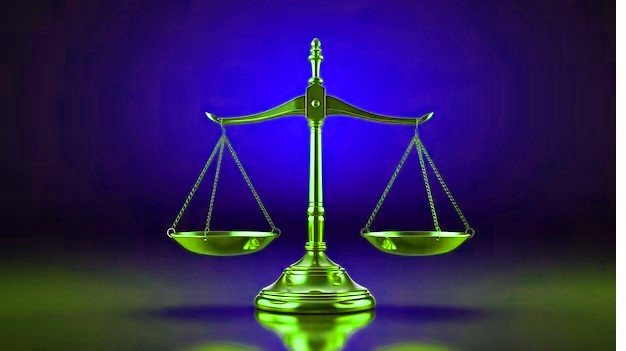Criminal law is a foundational aspect of the legal system that addresses offenses against society as a whole, rather than just individual victims. It encompasses a body of rules and regulations designed to maintain social order, prevent harm, and uphold justice within a community. The importance of criminal law in the legal system cannot be overstated, as it serves as a framework for investigating, prosecuting, and adjudicating criminal acts.
Principles of Criminal Law
The principles of criminal law are fundamental to ensuring fairness and justice in legal proceedings. One of the core principles is the presumption of innocence, which dictates that individuals accused of crimes are considered innocent until proven guilty beyond a reasonable doubt. This principle places the burden of proof on the prosecution to establish the defendant’s guilt, rather than requiring the defendant to prove their innocence.
Additionally, criminal law requires the presence of both mens rea (mental intent) and actus reus (physical act) for a crime to occur. Mens rea refers to the defendant’s state of mind at the time of the offense, while actus reus pertains to the physical act or conduct that constitutes the crime. The combination of these two elements is essential for establishing criminal liability.
Furthermore, criminal law guarantees due process, ensuring that defendants are afforded fair treatment and procedural rights throughout the legal process. Due process safeguards include the right to legal representation, the right to a speedy and public trial, the right to confront witnesses, and the right to appeal a conviction.
Practice of Criminal Law
The practice of criminal law involves several distinct phases, each serving a specific purpose in the criminal justice process. The investigation phase marks the initial stage, during which law enforcement agencies gather evidence, interview witnesses, and collect information to identify suspects and build a case. This phase is crucial for establishing probable cause and determining whether sufficient evidence exists to warrant criminal charges. Hire the best criminal defense lawyer to swiftly resolve your legal issues with expertise and confidence.
Once the investigation is complete, the charging phase begins, wherein prosecutors review the evidence gathered by law enforcement and decide whether to formally charge the defendant with a crime. Prosecutors assess the strength of the case, consider legal statutes and precedents, and determine the appropriate charges to file based on the available evidence.
Following the filing of charges, the trial phase commences, wherein the case is presented before a judge and jury in a court of law. Both the prosecution and the defense have the opportunity to present evidence, call witnesses, and make arguments supporting their respective positions. The trial culminates in a verdict, where the jury determines the defendant’s guilt or innocence based on the evidence presented.
If the defendant is found guilty, the sentencing phase follows, during which the judge imposes a punishment or penalty for the convicted individual. Sentencing considerations may include the severity of the crime, the defendant’s criminal history, mitigating or aggravating factors, and the principles of proportionality and rehabilitation.
Key Players in the Legal System
Several key players participate in the criminal justice system, each with specific roles and responsibilities in the administration of justice. Judges preside over legal proceedings, ensuring that the courtroom operates by established laws and procedures. They oversee trials, rule on evidentiary matters, and impose sentences in cases where the defendant is convicted.

Prosecutors represent the state or government in criminal proceedings, serving as the legal advocates responsible for presenting evidence, questioning witnesses, and arguing for the conviction of the defendant. Prosecutors must seek justice and uphold the law while adhering to ethical standards and principles of fairness.
Defense attorneys advocate on behalf of the accused, providing legal representation and safeguarding the defendant’s rights throughout the legal process. Defense attorneys assess the evidence against their clients, challenge the prosecution’s case, and present arguments in support of the defendant’s innocence or for mitigating factors during sentencing.
Juries play a crucial role in the criminal justice system by serving as impartial fact-finders tasked with evaluating the evidence presented during trial and reaching a verdict based on the law and the facts of the case. Jurors are selected from the community and are responsible for deliberating on the evidence presented and rendering a unanimous or majority decision, depending on the jurisdiction.
Evolution of Criminal Law
Criminal law has evolved significantly over time, reflecting changes in societal norms, values, and legal philosophies. The historical development of criminal law can be traced back to ancient civilizations, where early legal systems relied on principles of retribution and restitution to address wrongdoing within communities.
As societies progressed and legal systems became more formalized, criminal law underwent transformational changes, including the codification of laws, the establishment of legal principles, and the development of procedural safeguards to protect the rights of individuals accused of crimes.
In the modern era, criminal law continues to evolve in response to emerging challenges and advancements in technology, science, and globalization. Recent trends in criminal law include the recognition of new types of crimes facilitated by technology, such as cybercrimes, identity theft, and online fraud, which require specialized investigative techniques and legal frameworks to address effectively.
Moreover, the rise of transnational crimes, such as terrorism, human trafficking, and drug smuggling, has underscored the need for international cooperation and collaboration among law enforcement agencies and governments to combat these global threats.
Read More: Criminal Law and Justice: A Comprehensive Overview
Challenges in Modern Criminal Law
Despite its importance in maintaining social order and upholding justice, criminal law faces numerous challenges in the modern era. One significant challenge is the rapid advancement of technology and its impact on criminal behavior. The proliferation of digital technologies and the internet has facilitated new forms of criminal activity, including cybercrimes, online harassment, and intellectual property theft, posing challenges for law enforcement agencies and legal practitioners tasked with investigating and prosecuting these offenses.
Globalization has also presented challenges for criminal law, as transnational crimes transcend national borders and jurisdictions, making it difficult to investigate and prosecute offenders effectively. Human trafficking, drug smuggling, and organized crime syndicates operate across multiple countries, necessitating coordinated efforts and international cooperation to combat these illicit activities.
Moreover, human rights considerations pose ethical dilemmas and challenges for criminal law, particularly concerning the treatment of defendants, the use of surveillance technologies, and the balance between security and individual liberties. Issues such as racial disparities in the criminal justice system, the use of solitary confinement, and the death penalty have sparked debates and calls for reform to address systemic inequalities and ensure justice for all individuals involved in the legal process.
Balancing Justice and Fairness
Achieving a balance between justice and fairness is a central objective of criminal law, as it seeks to uphold the rule of law while protecting the rights and liberties of individuals accused of crimes. One of the key principles guiding the practice of criminal law is the concept of proportionality, which requires that the punishment imposed for a crime be commensurate with the severity of the offense and the culpability of the offender.

While punishment serves as a deterrent to crime and reinforces societal norms and values, criminal law also recognizes the importance of rehabilitation and reintegration for offenders. Restorative justice practices focus on repairing the harm caused by criminal behavior, addressing the needs of victims, and promoting healing and reconciliation within communities.
Furthermore, criminal law seeks to balance the interests of various stakeholders, including victims, offenders, and society as a whole. Victims’ rights initiatives advocate for the rights of crime victims to be informed, consulted, and supported throughout the legal process, ensuring that their voices are heard and their interests are taken into account during proceedings.
Impact of Criminal Law on Society
Criminal law has a profound impact on society, influencing behavior, shaping norms, and promoting public safety. By establishing clear rules and consequences for unlawful conduct, criminal law serves as a deterrent to crime, dissuading individuals from engaging in behavior that may harm others or undermine social order.
Moreover, criminal law plays a crucial role in maintaining public safety and protecting individuals and communities from harm. Through the investigation and prosecution of criminal offenses, law enforcement agencies and legal practitioners work to identify and apprehend dangerous individuals, disrupt criminal networks, and prevent future acts of violence or wrongdoing.
However, the impact of criminal law extends beyond punishment and deterrence, raising important questions about civil liberties, individual rights, and social justice. Concerns about overcriminalization, racial disparities in the criminal justice system, and the use of incarceration as a primary form of punishment have prompted calls for reform and reevaluation of existing laws and practices to ensure fairness and equity for all individuals involved in the legal process.
Future Trends in Criminal Law
Looking ahead, criminal law is poised to undergo further evolution and transformation in response to emerging trends and challenges in the modern era. Legal reforms may seek to address systemic issues within the criminal justice system, such as racial disparities in sentencing, disparities in access to legal representation, and the use of pretrial detention.
Advancements in forensic science and technology will continue to shape the investigation and prosecution of crimes, enabling law enforcement agencies to gather and analyze evidence more effectively, identify perpetrators, and secure convictions in criminal cases. DNA analysis, digital forensics, and surveillance technologies are among the tools that are increasingly being utilized to solve crimes and hold offenders accountable for their actions.
Furthermore, international cooperation and collaboration will become increasingly important in addressing global threats and transnational crimes, such as terrorism, cybercrime, and human trafficking. Law enforcement agencies and governments will need to work together to share information, resources, and expertise to combat these complex and interconnected challenges effectively.
Read More: Punishment and Rehabilitation: Criminal Law Changes
Conclusion
In conclusion, criminal law is a multifaceted and dynamic field that encompasses principles, practices, and challenges within the modern legal system. By upholding fundamental principles of justice and fairness, addressing emerging trends and challenges, and adapting to advancements in technology and globalization, criminal law plays a vital role in maintaining order, promoting accountability, and upholding the rule of law in society.
FAQs
What role does the presumption of innocence play in criminal law proceedings?
The presumption of innocence ensures individuals are considered innocent until proven guilty, placing the burden of proof on the prosecution.
How do prosecutors determine whether to file criminal charges against a defendant?
Prosecutors assess evidence strength, offense severity, likelihood of conviction, and interests of justice to decide on filing charges.
What factors are considered during the sentencing phase of a criminal trial?
Judges consider the offense’s nature, the defendant’s history, impact on victims or society, and principles of proportionality and rehabilitation in sentencing.
How do advancements in technology impact the investigation and prosecution of crimes?
Technology aids in evidence gathering, analysis, and presentation, revolutionizing investigations and detection of cybercrimes.
What are some examples of restorative justice practices and their impact on the criminal justice system?
Restorative justice practices include victim-offender mediation, community-based initiatives, reducing recidivism rates, empowering victims, and fostering community involvement.